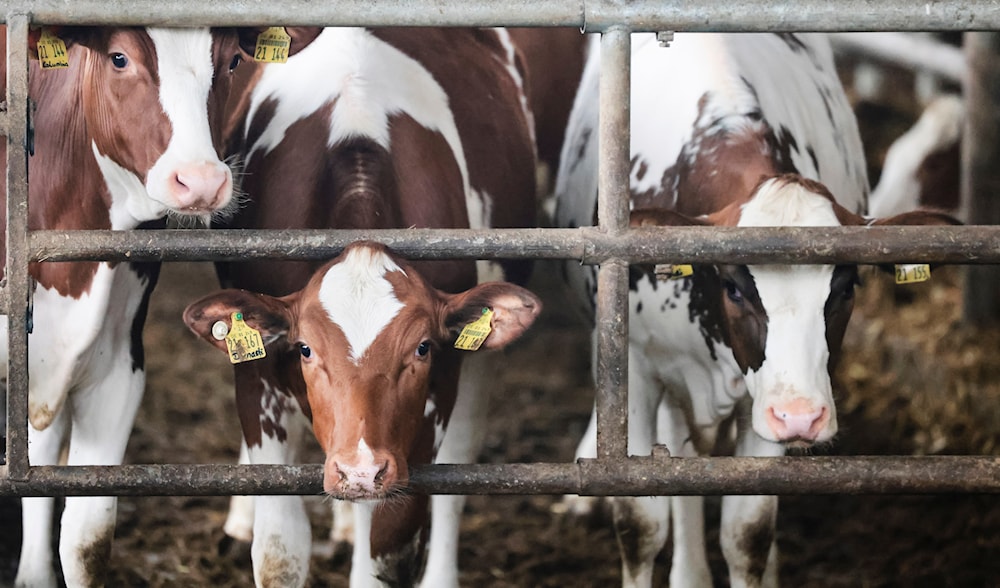Bird flu found in Texas, Kansas cows but no threat to milk supply: FDA
Cow herds in New Mexico and Idaho and two added herds in Texas are being tested for the "highly pathogenic avian influenza," known as the bird flu.
-

Young cows stand in a barn in Sprakebuell, Germany, Thursday, March 14, 2024. (AP)
The spread of "a highly contagious and often deadly" bird flu to dairy cows in the US states of Texas, Kansas, and Michigan is being investigated by the US Food and Drug Administration.
According to the agency, the flu was discovered in unpasteurized milk samples and swabs from two dairy herds in Texas and Kansas and one in Michigan, but the FDA said in an online Q&A that "no concern" remains about the safety of the US milk supply.
As a result, cow herds in New Mexico and Idaho and two added herds in Texas are being tested for the "highly pathogenic avian influenza," known as the bird flu.
Read more: UK researchers discover human gene with potential to thwart Bird Flu
"Pasteurization is required for any milk entering interstate commerce," the FDA said, adding that they loss of milk from sick cows is "too limited to have a major impact on supply" which indicates that "there should be no impact on the price of milk or other dairy products".
Still, the FDA has limited research capacity to know whether the disease can be transmitted through raw, unpasteurized milk or other dairy products like cheese.
Ongoing avian influenza (#BirdFlu) outbreaks in animals pose risks to humans too - countries should work together and across sectors of society, to protect people and save as many animals as possible https://t.co/dzuLv6vq31 pic.twitter.com/fMlOVnqkSY
— World Health Organization (WHO) (@WHO) July 12, 2023
The agency recommends against buying and selling such products when cows show signs of illness even if the cheese will undergo the required 60-day aging process.
Previous outbreaks
The bird flu was significantly recorded in multiple farms around the world last year.
In October, according to the African Farmers' Association of South Africa (AFASA) bird flu outbreaks were recorded in 11% of South African farms, and the disease's expansion might lead to a lack of chicken and eggs in the country.
In May, Brazilian authorities declared a nationwide "animal health emergency" after eight wild birds tested positive for avian flu. The agriculture ministry noted that the emergency measures aim to "prevent (the virus) from spreading to domesticated birds and commercial poultry operations, as well as protect animals and human health."
Then in March last year, over 15 million chickens were culled in Japan due to the disease; this is considered an all-time high for the country.
Bird flu has been detected in 2 out of 47 prefectures in Japan since October 28, 2022. Despite the fact that chicken egg prices are already higher due to inflation, the virus caused prices to go up even more.
Bird flu, primarily transmitted among wild birds such as ducks and gulls, can also infect farmed birds and domestic poultry, including chickens, turkeys, and quails. While these viruses primarily impact birds, they can occasionally spill over into bird predators and, in rare cases, humans who come into close contact with infected birds.

 3 Min Read
3 Min Read








